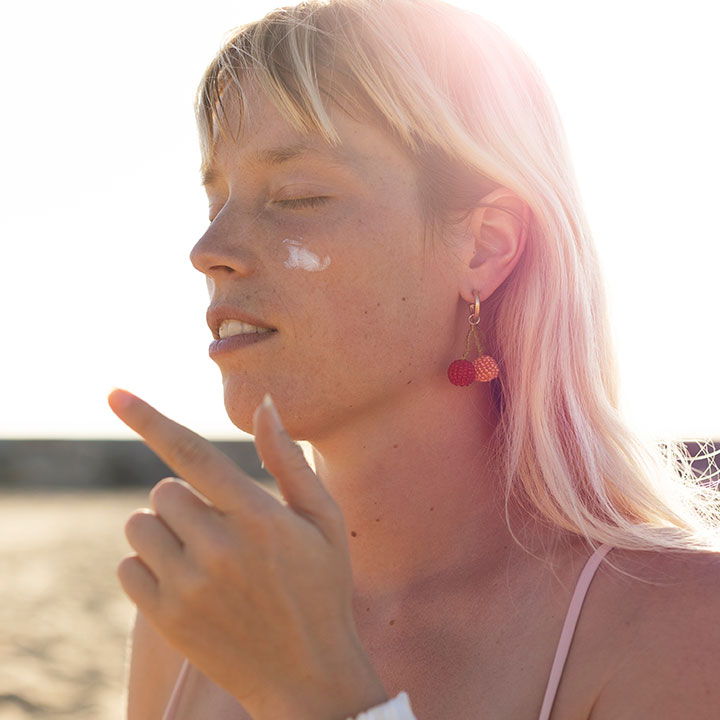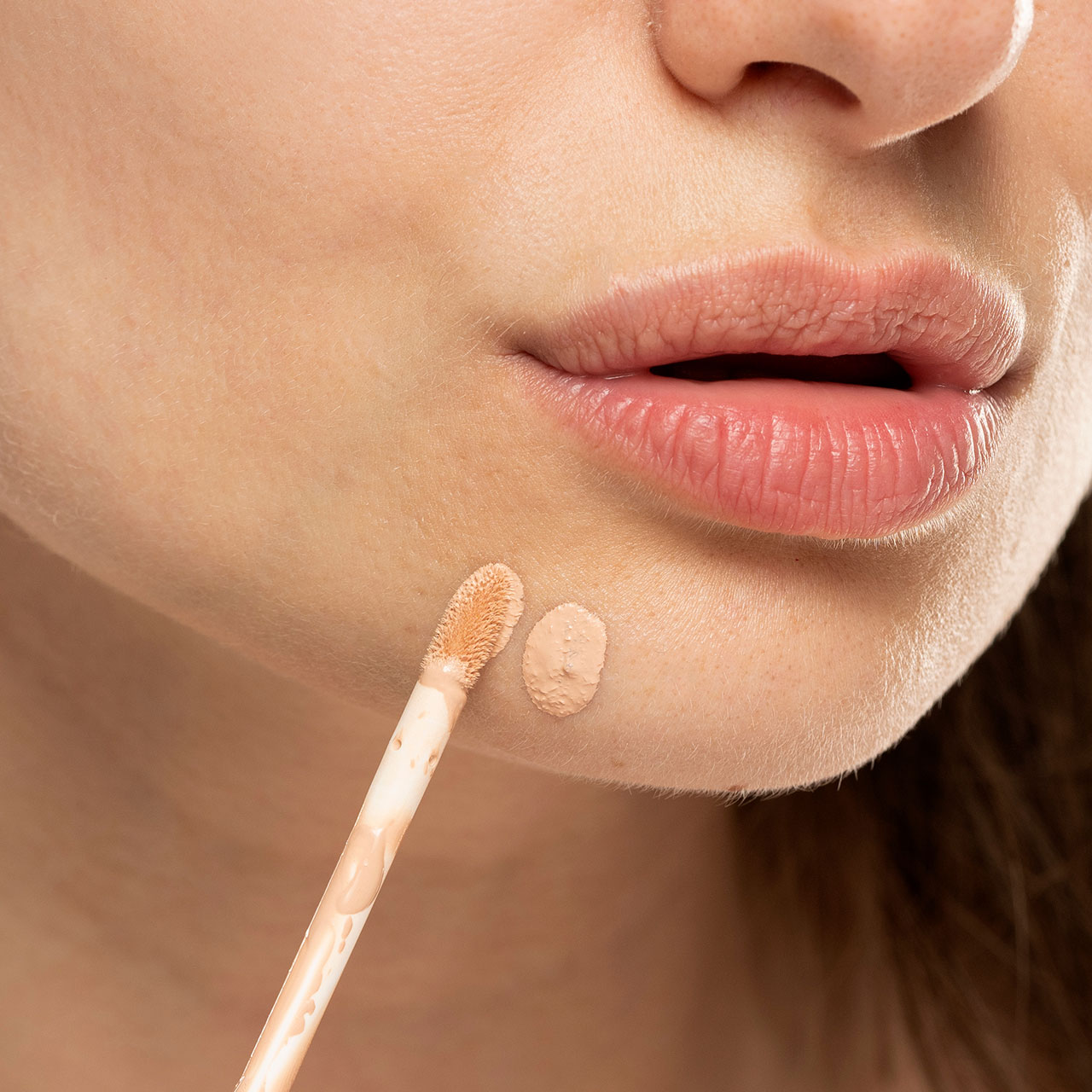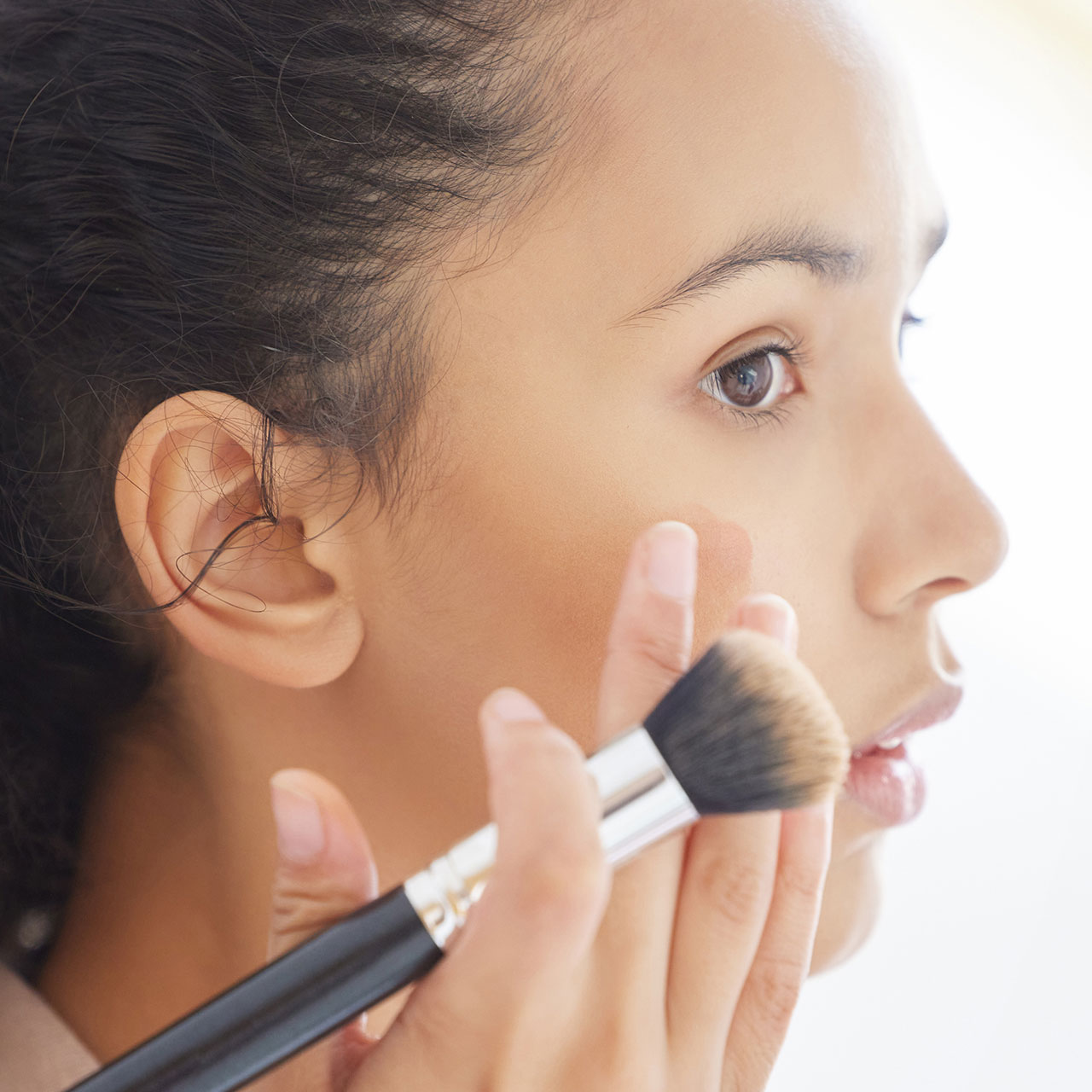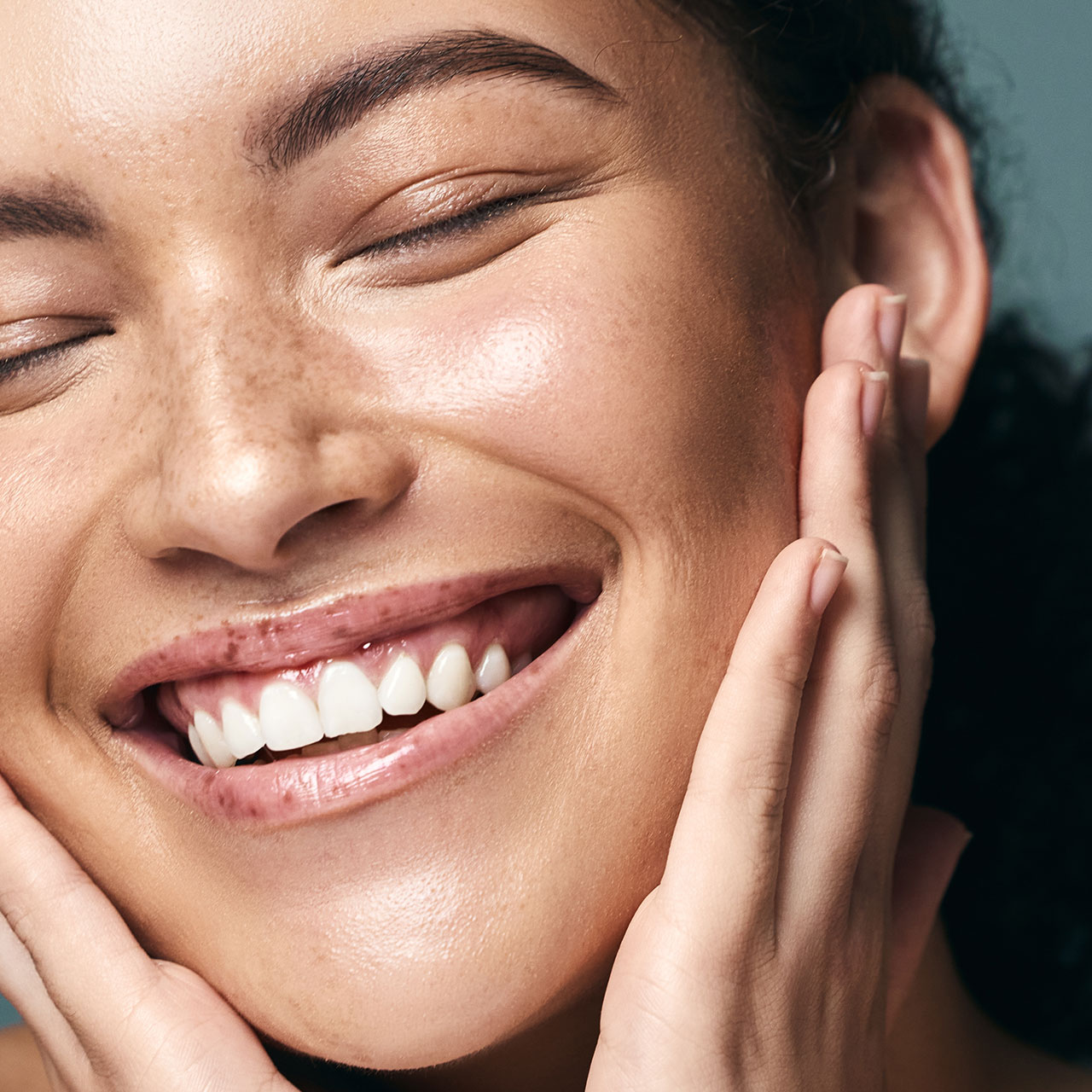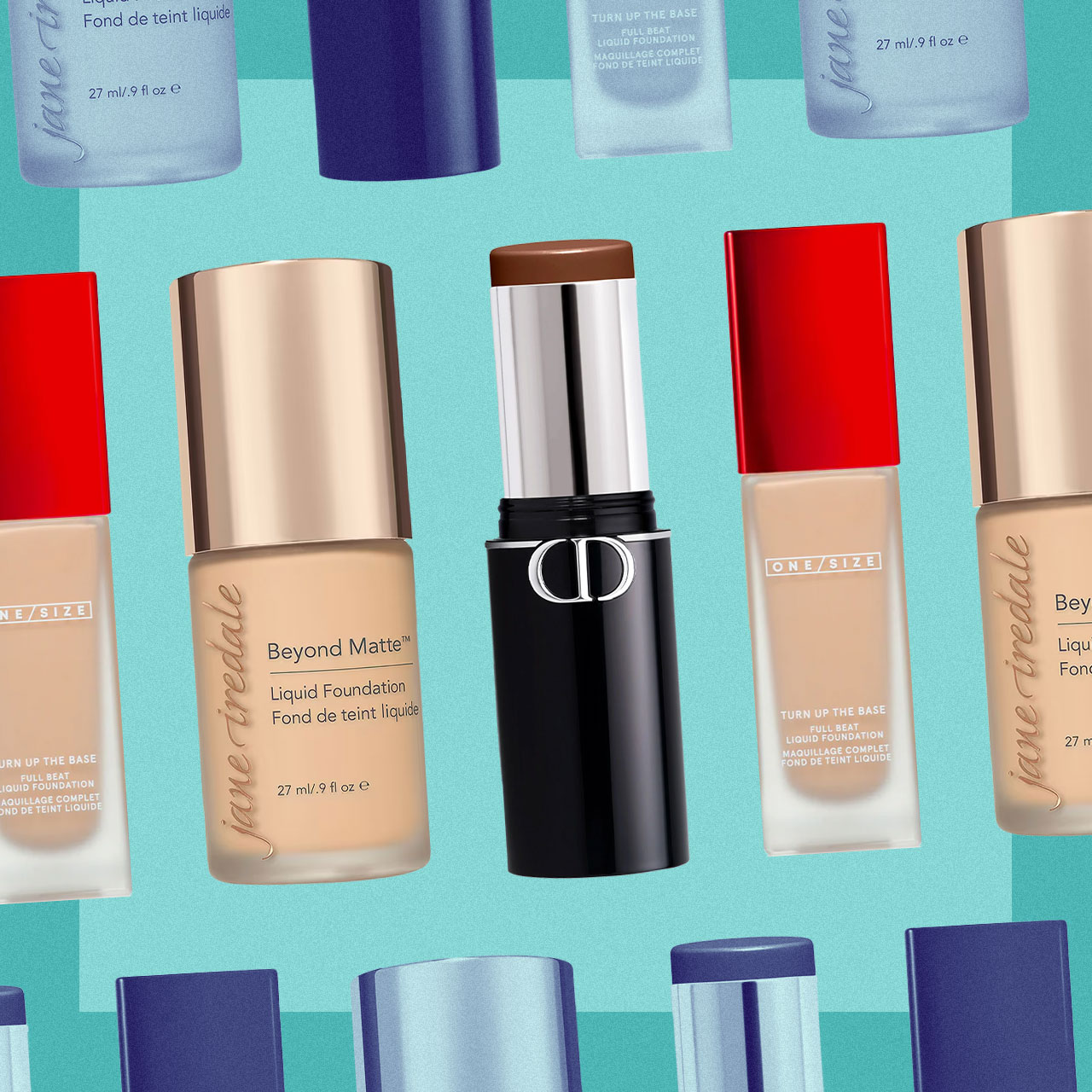Even though the hottest days of summer 2022 are dwindling, it is still vital to apply daily sunscreen all year-round. With that said, we reached out to dermatologists and skincare experts for tips on how to find the best sunscreen to prevent facial sun damage like dark spots, and other negative effects, like premature wrinkling.
Read on for tips, suggestions and insight from Dr. Joanne Simpson, MD, MPH, board-certified dermatologist and melanin skin expert at Charlotte Dermatology, and Dr. Simran Sethi, MD, skincare expert and founder and CEO of RenewMD Beauty & Wellness MedSpa,

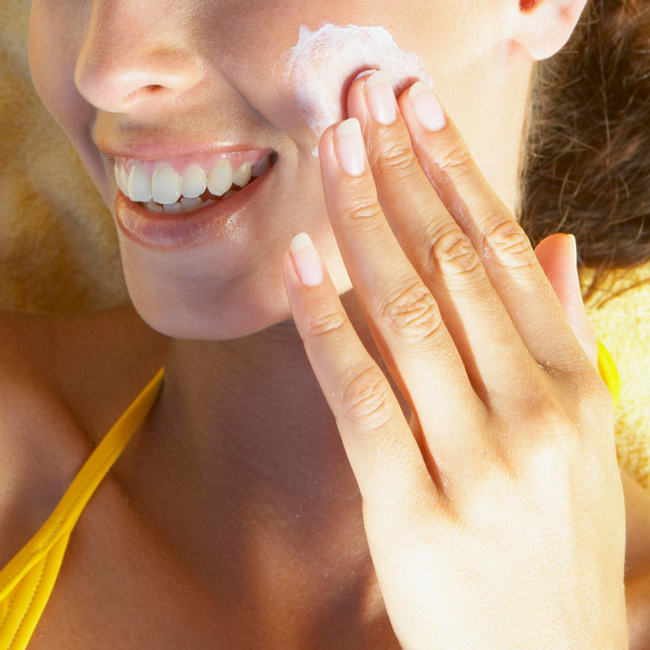
woman applying white sunscreen to face yellow halter top sunny beach day
Tip 1. Choose A Mineral Tinted Sunscreen
For a product that won't clog your pores and will promote youthful radiance all year long, Simpson recommends choosing a mineral tinted sunscreen for daily use. "The best sunscreens for people dealing with dark spots hyperpigmentation are broad-spectrum formulas with an SPF of 30 or higher," she explains, "More specifically, tinted mineral sunscreens."
A mineral sunscreen that contains a physical sunblock such as zinc oxide and/or titanium dioxide, she adds, is "crucial for promoting healthy skin." Unlike their chemical counterparts that work by absorbing and neutralizing ultraviolet light and the sun's harmful rays, Simpson notes that these mineral (or physical) sunscreens "help to protect you from the sun by sitting on top of skin and physically blocking or reflecting harmful rays and visible light that cause dark spots."

woman choosing between two sunscreen lotion products at the store beauty aisle
2. Check For UVA, UVB and Blue Light Protection
Sethi stresses that your sunscreen should "not only be broad spectrum with UVA and UVB protection, but also contain blue light protection." Blue light is abundant, both outdoors and indoors, she warns, and "over the last ten years, has been shown to cause skin aging at a deeper level, making blue light a significant contributor to dark spots." Sethi says that most sunscreens do not include blue light protection, so "it is important to pay attention to what is being protected, in addition to SPF and active ingredients."
Sunscreen should also be a "physical barrier" containing zinc or titanium oxide, she reiterates, at "high concentrations to provide optimal coverage and sun protection." Sethi suggests sunscreens "with a natural mineral, because they blend into the skin well which makes people more willing to wear sunscreen." Additionally, physical barrier sunscreens start protecting your skin "as soon as they are applied," she concludes, versus "physical barrier ones that take about 30 minutes to absorb into the skin before becoming active." Noted!





